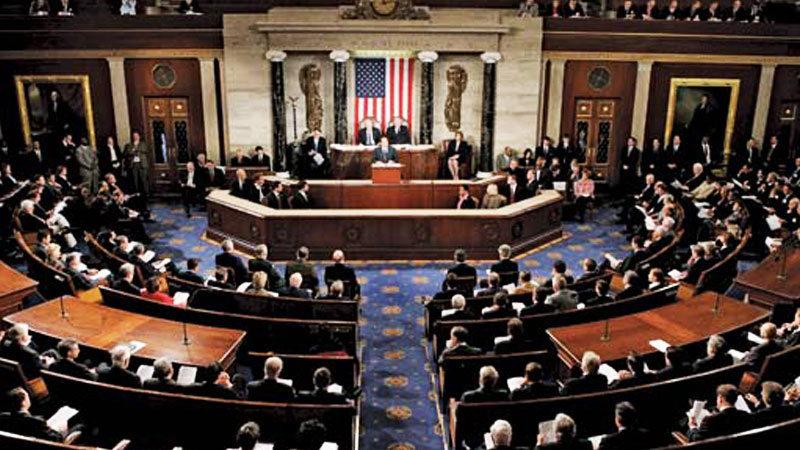United States Moves To Restrict Military Aid To Pakistan

NEW DELHI: The United States’ House of Representatives has voted 277 to 147 in favour of a defence policy bill seeking to increase restrictions on military aid for Pakistan unless certain conditions are met.
The US has long criticised Islamabad’s failure to crackdown on certain terror groups, specifically the Haqqani network. As such, the clearance of the $602 billion National Defense Authorization Act 2017, or NDAA was tied to certain conditions.
The NDAA will block $450 million in aid to Islamabad unless Pakistan takes more concrete measures against the Haqqani network -- which the US sees as a major roadblock to peace in Afghanistan.
The blocked amount will only be released if the Pentagon is certain that Pakistan is doing its bit in conducting military operations to disrupt the Haqqani network, not letting the network use North Waziristan as a safe haven and actively coordinating with Afghanistan's government to fight the network along the Pakistan-Afghanistan border.
Further, an amendment to the bill requires Pakistan to show progress in arresting and prosecuting Haqqani network senior leaders and mid-level operatives -- a measure that will be certified by the administration before the release of aid.
Another amendment required that the Secretary of Defence certify Pakistan is not using its military or any funds or equipment provided by the US to persecute minority groups.
A third amendment concerned Shakil Afridi -- a Pakistani physician who helped the CIA run a fake hepatitis vaccine program in Abbottabad to confirm Osama bin Laden's presence in the city by obtaining DNA samples. This confirmation enabled the US to capture and kill Bin Laden. Afridi, however, was sentenced by the Pakistani government to 33 years in jail in 2012 on charges of belonging to a militant group -- a charge that Afridi denies.
Pakistan maintains that Afridi’s trial is an internal matter, whereas several US politicians have publicly called for his release. The amendment to the NDAA calls for Afridi’s immediate release.
This version of the bill passed by the House of Representatives is not the final bill, as it has to be combined with a Senate bill and then be signed (or vetoed) by the President of the United States.
Early this week, the White House had expressed strong objections to several provisions of the bill, including the one related to $450 million in aid to Pakistan. The White House sent a policy statement to Congress, stating that efforts to restrict US military assistance to Pakistan would hurt bilateral ties. In the statement, the White House said that it appreciated the lawmakers’ concerns about the Haqqani network, but disagreed with their move to restrict aid as it would “unnecessarily complicate progress” in ties with Pakistan.
"The administration objects to section 1212 (of HR 4919), which would make USD 450 million of CSF (Coalition Support Fund) to Pakistan ineligible for the Secretary of Defense's waiver authority unless the Secretary provides a certification to the Congressional defense committees," the White House said in its statement.
"We share the committee's concerns regarding the threat posed to our forces and interests in Afghanistan by the Haqqani Network, and we continue to engage with Pakistan at the highest levels regarding the need for concerted action specifically against the group," the White House added.
The restriction in section 1212 “unnecessarily complicates progress in our bilateral relationship on this issue and would limit the Secretary of Defence’s ability to act in the US national security interest,” it added.
The version passed by the House of Representatives, however, is in corroboration with a trend that sees increasing criticism of Pakistan in US policy circles.
The most recent implication of this was the US’ decision to not fund the purchase of eight Lockheed Martin Corp F-16 fighter jets by Pakistan, asking Pakistan to use its own resources instead.
Several lawmakers had blocked the deal, claiming that Pakistan would use the jets against India instead of fighting militancy in the region. According to the original plan, Islamabad was to pay $270 million for the purchase of the fighter jets, with the US putting up $430 million. With the opposition to the Obama administration’s original plan, the US asked Pakistan to foot the entire amount.
Pakistan has made no move to do so, indicating instead that F-16 fighter jets could be replaced by JF-17 Thunder jets, which have been developed jointly by China's Aviation Industry Corporation of China and the Pakistan Aeronautical Complex.



